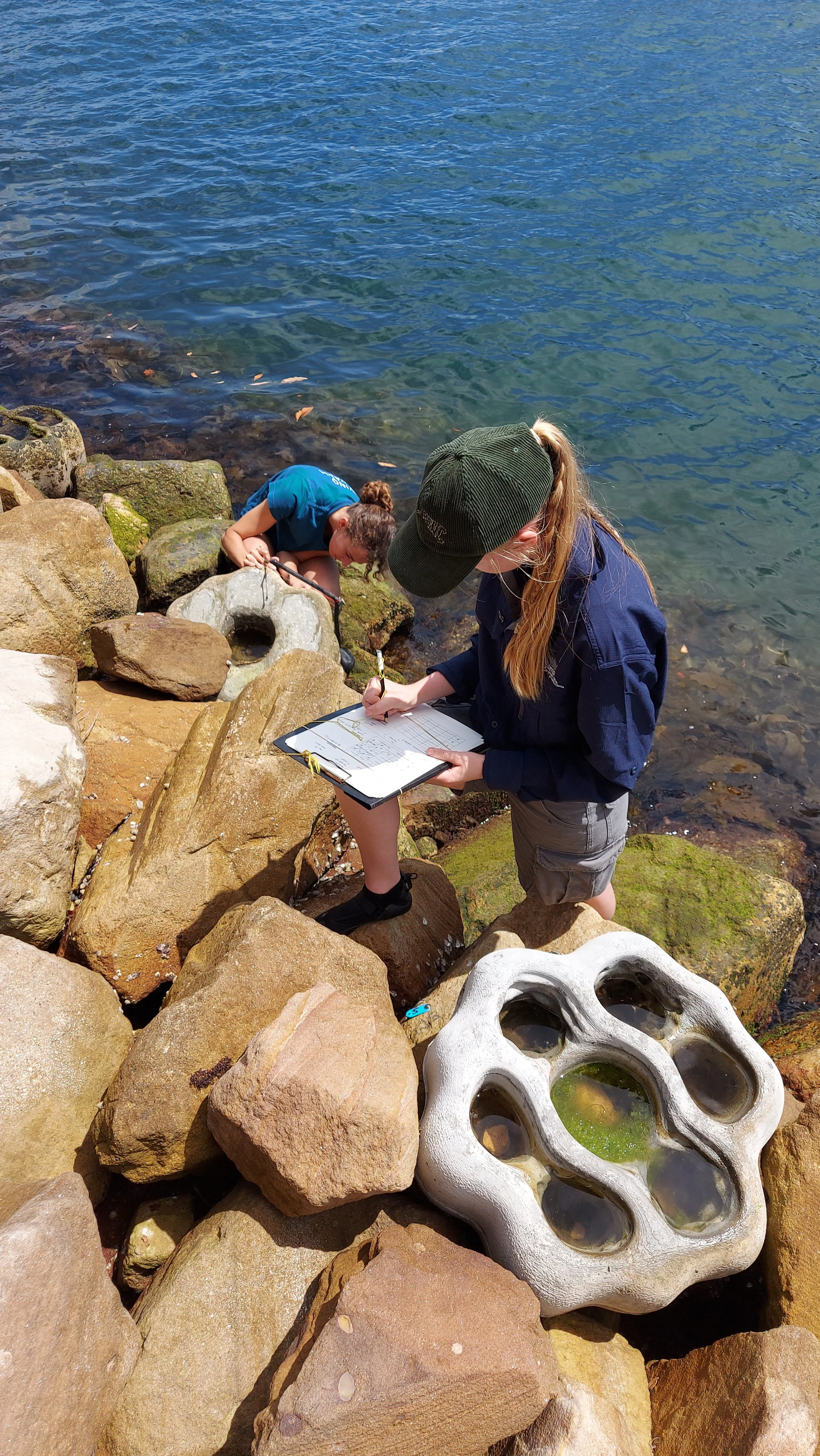
Ecological Consulting
Designing with Nature
Grounded in 20+ years of marine ecological research, Living Seawalls installations span 20+ global sites. Our ecologists offer tailored interventions to improve biodiversity and ecosystem health along urban shorelines. Our team can provide ecological consultation on shoreline design and re-development from full nature-based solutions to hybrid or hard eco-engineering enhancements that are adapted to specific infrastructure and space limitations. Using a multifunctional approach, foreshore developments can enhance native biodiversity and ecological function, improve ecosystem services and shoreline resilience, and create accessible blue spaces that promote public well-being.
Monitoring & Evaluation
Living Seawalls maintains an active scientific monitoring program across Australian and international sites. This ongoing data collection is essential to evaluate biodiversity outcomes, refine habitat module designs, and inform future sustainable coastal developments. We conduct regular surveys of epibenthic and fish communities, as well as measurements of ecosystem functioning and photosynthetic efficiency. These are compared against non-modified structures and natural shorelines to assess performance. Robust ecological monitoring and reporting are critical to demonstrate the effectiveness of nature-based solutions and justify the investment, as well as to enable adaptive management of projects to maximise benefit. These assessments will provide measurable evidence of ecological and social benefits, reinforcing the value of integrating ecological benefits into foreshore redesign.
Enhancing Urban Shorelines
Where full restoration isn’t feasible, Living Seawalls enables the integration of nature-based or hybrid solutions that are ecologically sustainable, support biodiversity, and deliver community and environmental benefits. These can include supporting:
● Restoration and creation of natural ecosystems
● Minimising habitat loss and enhancing community value
● Designing structures to improve ecological services in the environment
● Public access and connection to marine environments
● Environmental education and recreation opportunities
Our team highlights the importance of co-design for humans as well as the natural environment. By integrating ecological, social and community benefits alongside educational engagement our urban shorelines can become beneficial across multiple scales.




